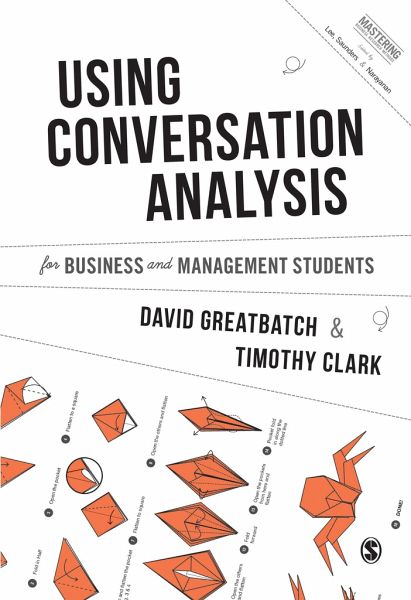
Using Conversation Analysis for Business and Management Students
Versandkostenfrei!
Versandfertig in 6-10 Tagen
28,99 €
inkl. MwSt.
Weitere Ausgaben:

PAYBACK Punkte
14 °P sammeln!
In Using Conversation Analysis, David Greatbatch and Timothy Clark introduce the key elements of conversation analysis, an increasingly prominent form of business research analysis, which involves analysing audio and visual recordings of naturally occurring talk-in-interaction such as television speeches and interview exchanges, to see how meanings are constructed.Ideal for Business and Management students reading for a Master s degree, each book in the series may also serve as reference books for doctoral students and faculty members interested in the method.Part of SAGE s Mastering Business ...
In Using Conversation Analysis, David Greatbatch and Timothy Clark introduce the key elements of conversation analysis, an increasingly prominent form of business research analysis, which involves analysing audio and visual recordings of naturally occurring talk-in-interaction such as television speeches and interview exchanges, to see how meanings are constructed.
Ideal for Business and Management students reading for a Master s degree, each book in the series may also serve as reference books for doctoral students and faculty members interested in the method.
Part of SAGE s Mastering Business Research Methods Series, conceived and edited by Bill Lee, Mark N. K. Saunders and Vadake K. Narayanan and designed to support researchers by providing in-depth and practical guidance on using a chosen method of data collection or analysis.
Ideal for Business and Management students reading for a Master s degree, each book in the series may also serve as reference books for doctoral students and faculty members interested in the method.
Part of SAGE s Mastering Business Research Methods Series, conceived and edited by Bill Lee, Mark N. K. Saunders and Vadake K. Narayanan and designed to support researchers by providing in-depth and practical guidance on using a chosen method of data collection or analysis.




